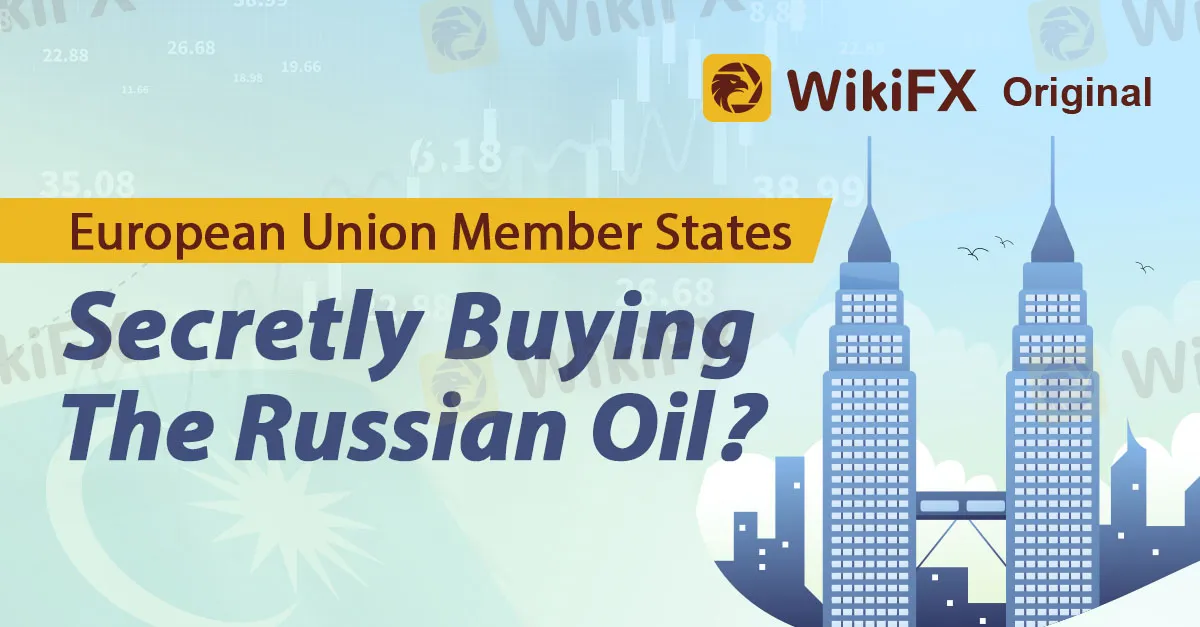简体中文
繁體中文
English
Pусский
日本語
ภาษาไทย
Tiếng Việt
Bahasa Indonesia
Español
हिन्दी
Filippiiniläinen
Français
Deutsch
Português
Türkçe
한국어
العربية
European Union Member States Secretly Buying The Russian Oil?
Abstract:It seems like some countries in the West are secretly buying the Russian oil despite the imposed sanctions. How are they doing this and why?

<WikiFX Malaysia Original – Editor: Fion>
As of writing on the afternoon of 25th April, oil prices extended their decline. The U.S. crude oil broke below the $100 mark while the brent oil is fighting to remain above $101. This price drop is due to the slowing down of global economy, rising interest rates, and the prospect that the Covid-19 would continue to affect demand levels.

Meanwhile, a new topic to watch out for currently is that some countries in Europe are suspected of buying oil from Russia despite its imposed sanctions. The paradoxical scenario here is that while the European Union plans to further tighten its energy ban on Russia, it looks like Russian oil exports to EU countries have also been rebounding secretly.
On the 22nd of April, the Wall Street Journal reported that Russia has recently increased its oil shipments to its main customer, the European Union. In recent weeks, the Netherlands, Greece and other European countries have also been purchasing more of the Russian oil in the month of April.

It is reported that oil purchases were shipped from Russian ports to “unknown destinations” with more than 11.1 million barrels of oil loaded onto tankers with no specified route. According to TankerTrackers.com, a website that tracks and reports shipments of crude oil in several geographical and geopolitical points of interest, oil exports from Russian ports to EU member states have risen to an average of 1.6 million barrels per day in April, compared to an average of 1.3 million barrels per day in March.
The reason behind this could be that Western energy companies and oil brokers desperately need oil to keep their economies afloat and prevent fuel prices from further pushing up inflation figures that have already surpassed historical peaks. However, due to those sanctions imposed on Russia by the European Union, they had no choice but to “trade quietly”. The concern right now is that should this situation further continue, there could be a rise of an opaque market.
Morgan Stanley raised its estimate for Brent oil prices in the third quarter by $10 to $130 a barrel, citing a “widening supply gap” this year due to reduced supply from Russia and Iran, which could outweigh the impact of short-term demand disruptions.
A Morgan Stanley report dated April 21 said, “Oil markets are struggling with downward revisions to GDP and the massive release of strategic oil reserves.” Moreover, Morgan Stanley sees a shortfall of about 1 million barrels per day lasting until the end of 2022, as deteriorating interest in buying Russian oil and a lack of progress in reviving the Iran nuclear deal could exacerbate supply problems. The bank also lowered its oil demand growth forecast to 2.7 million barrels per day from 3.4 million barrels per day.
<WikiFX Malaysia Original – Editor: Fion>

Disclaimer:
The views in this article only represent the author's personal views, and do not constitute investment advice on this platform. This platform does not guarantee the accuracy, completeness and timeliness of the information in the article, and will not be liable for any loss caused by the use of or reliance on the information in the article.
Read more

Forex Price Trend Prediction! | Come be a New Year Price Winner!
Become a New Year Price Winner by predicting the fluctuations of Forex!

Forex Price Trend Prediction:Come be a New Year Price Winner!
Become a New Year Price Winner by predicting the fluctuations of Forex!

South Korean President Yoon Suk Yeol's Arrest Shakes Markets
President Yoon Suk Yeol's arrest impacts South Korean markets, currency, and global investments, raising concerns about economic stability and investor confidence.

What Every Trader Must Know in a Turbulent Market
The global financial markets are no strangers to periods of uncertainty, and recent weeks have been a testament to their unpredictable nature. Heightened volatility across major indices, including the US stock market, has left traders reassessing their strategies as they face both opportunities and risks.
WikiFX Broker
Latest News
90 Days, Rs.1800 Cr. Saved! MHA Reveals
The Yuan’s Struggle: How China Plans to Protect Its Economy
LiteForex Celebrates Its 20th Anniversary with a $1,000,000 Challenge
Misleading Bond Sales Practices: BMO Capital Markets Fined Again by SEC
Italy’s Largest Bank Intesa Sanpaolo Enters Cryptocurrency Market
What Every Trader Must Know in a Turbulent Market
Forex Price Trend Prediction! | Come be a New Year Price Winner!
Forex Brokers vs. Crypto Exchanges: Which Is Safer for Traders?
XTB Secures UAE and Indonesia Licenses, Expands in 2025
In Bursa Malaysia: Local Institutions Sustain Buying Streak & New Subsector Classification
Currency Calculator






